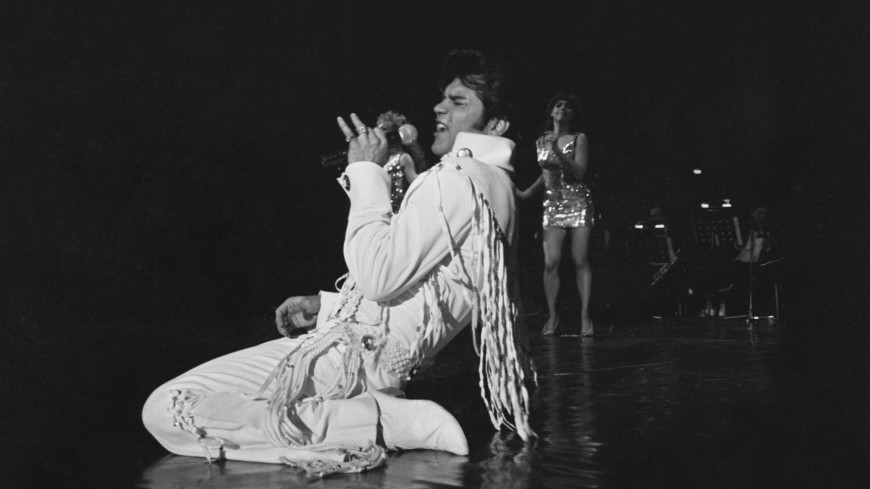“Big Love, Big Heartache” is a song by Elvis Presley, released in 1964 as part of the soundtrack for the film Roustabout. Written by Sid Tepper and Doc Pomus, it’s a poignant ballad that delves into the agony of heartbreak.

The song opens with Presley crooning about investing his heart and soul into his lover, only to be left with heartache when they depart. He reflects that the deeper the love, the greater the pain of loss. In the chorus, Presley sings: Big love, big heartache Now that you’ve said goodbye For every tender kiss I count the tears I cry
In the second verse, he expresses a sense of perpetual longing, declaring that his arms will remain open for his lover’s return. He concludes by affirming that their love will endure.

“Big Love, Big Heartache” reson ates as a powerful ballad encapsulating the anguish of heartbreak. It remains one of Presley’s enduring classics, covered by numerous artists over the years.

The song’s relevance endures, as it speaks to the universal experience of love and loss. It serves as a reminder that while love can bring immense joy, it can also bring profound sorrow. Yet, amidst the pain, there’s a glimmer of hope—Presley suggests that love can transcend heartache, persisting even in the face of adversity.
Video
Elvis Aaron Presley, often referred to as the “King of Rock and Roll,” was born on January 8, 1935, in Tupelo, Mississippi, USA. He rose to prominence in the mid-1950s, becoming one of the most iconic and influential figures in the history of popular music. Presley’s musical journey began at an early age when he started singing in church and listening to various genres of music, including gospel, blues, and country. In 1954, he signed a recording contract with Sun Records, where he began his career blending elements of rockabilly, rhythm and blues, and country music. His breakthrough came with the release of his first single, “That’s All Right,” followed by a string of hits such as “Heartbreak Hotel,” “Hound Dog,” and “Jailhouse Rock.” With his charismatic stage presence, distinctive voice, and provocative dance moves, Presley captured the hearts of audiences worldwide, revolutionizing the music industry and popular culture. Presley’s impact extended beyond music; he also found success as an actor, starring in a series of films throughout the 1960s. Despite his commercial success, he faced criticism from some quarters for his crossover into mainstream entertainment and the perceived dilution of his musical authenticity. Throughout his career, Presley struggled with the pressures of fame, leading to personal challenges, including substance abuse and health issues. Despite these obstacles, he remained a beloved figure, revered for his contributions to music and his enduring legacy. Tragically, Elvis Presley passed away on August 16, 1977, at the age of 42, leaving behind a legacy that continues to resonate with generations of fans. He was posthumously inducted into the Rock and Roll Hall of Fame, and his music remains a timeless testament to his enduring talent and cultural impact.

